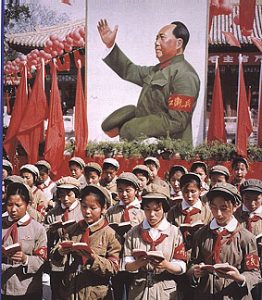Savages, Victims, and Saviors
by Mutua
Blog post by Megan Newcomb
Blog 2 focuses on “Savages, Victims and Saviors” by Mutua
The start of the reading begins with explaining what the savages-victims-saviors construction is. Mutua explains that this is a metaphor made of other metaphors to explain each role in this article. He said that the article “attempts to elicit from the proponents of the human rights movement several admissions, some of them deeply unsettling.” He then goes on to explain that this means the advocates take into consideration not just what they are doing but why they are doing it and how history has shaped the actions that they take now. This is to point out that human rights is not as black and white as it appears to be and that the advocate has just as much an impact on the movement as anything else. I agree with this because one persons sense of freedom and rights could be different from the next person. You see values and beliefs change from person to person even in families. My passions do not match my sisters and therefore if we were confronted with a similar scenario our reactions would differ because of it. Mutua goes on to talk about the roles in this three dimensional prism and with each role what we may or may not see. He also talks about how the SVS has its own flaws and lacks depth for situations that are not so black and white. Human rights corpus is also contributes to issues in this article because there are so many instances where power is ignored, things are taken out of context, and can be very biased. This just means that the author is pointing out that while the metaphor sounds great in theory, it shouldn’t be seen as simply good and evil.
He provides context on how the concept of SVS and human rights have a strong biased based on who hold power and this happens to be the countries that created the narrative of human rights, western culture. Mutua even says, ” any valid critique must first acknowledge that the human rights movement, like earlier crusades, is a bundle of contradictions.” The concept of human rights is westernized by those in power and typically doesn’t take into consideration the views of the cultures of others. My visit in China had shown me that what I would view as rude behavior were just common practices by the Chinese people. I felt I had a right to my privacy in China but time and time again there were pictures taken of me, police lurking everywhere, and no sense of personal space. I saw my privacy as a human right but in China that is not necessarily something they are focused on. They have issues such as censorship that seem to be a larger focus. So to impose my own beliefs of rights onto them would not take into consideration how their culture acts and/or feels on that particular issue.
The author believes that we are equip to deal with human rights violations in areas such as europe rather than in third world areas and thus we are not prepared to deal with the metaphorical savage of other cultures or nations necessarily. That is what this author is aruging in the reading. The author points out our hyper focus on third world issues with lack of understanding and our blatant ignorance of human rights violations in western cultures despite being equip to work with such world problems in those areas. Therefore the idea of the SVS should be lost because it creates false images and ideas for human rights advocates.
